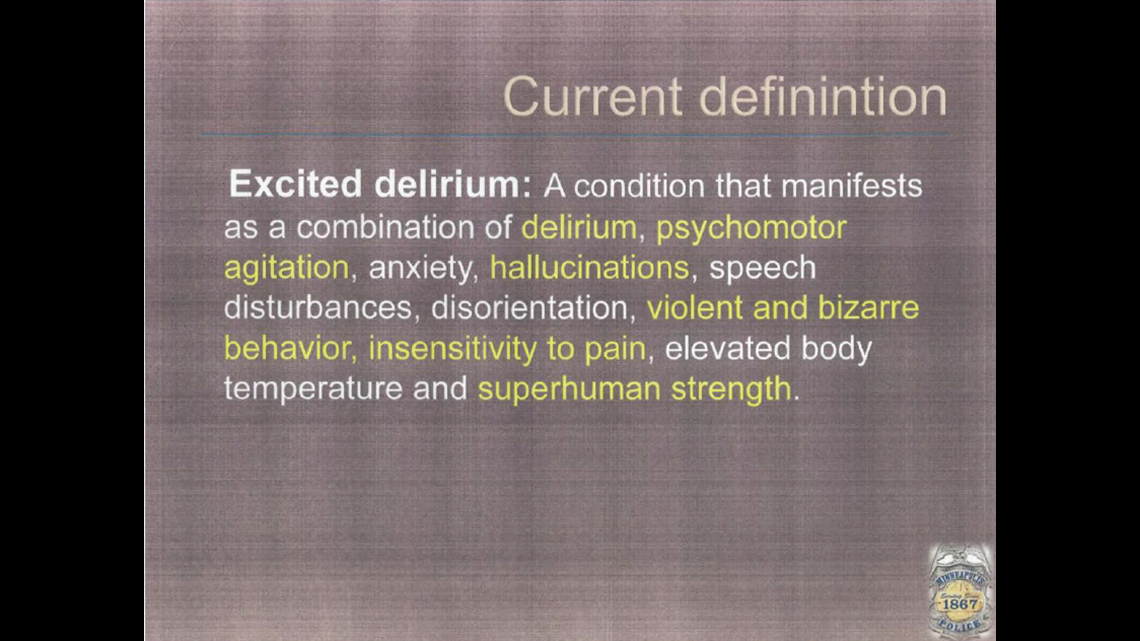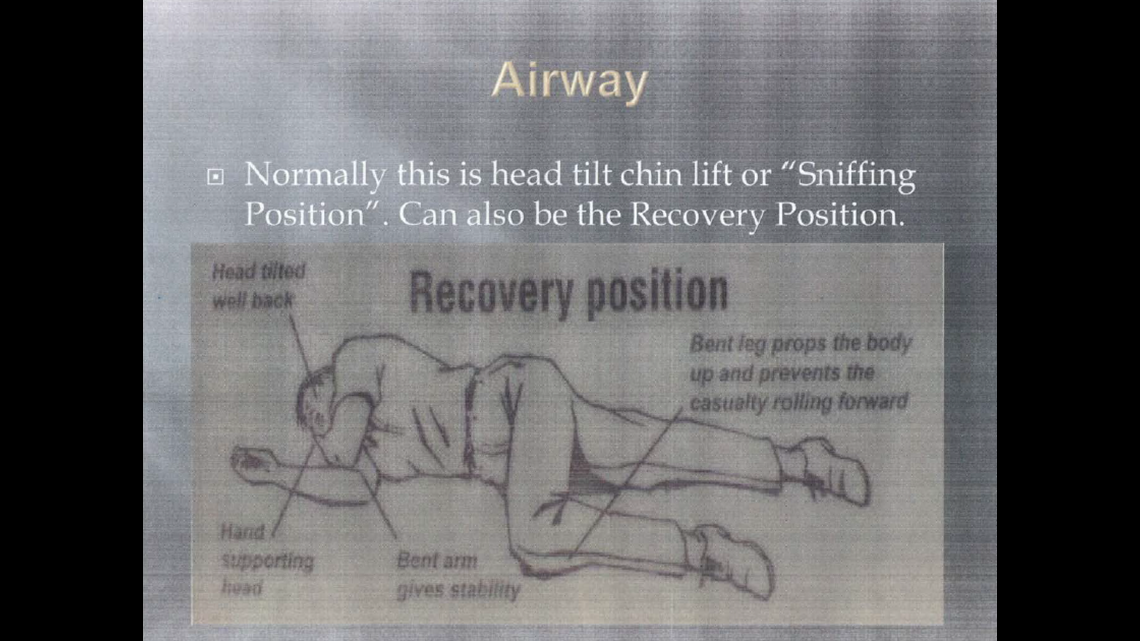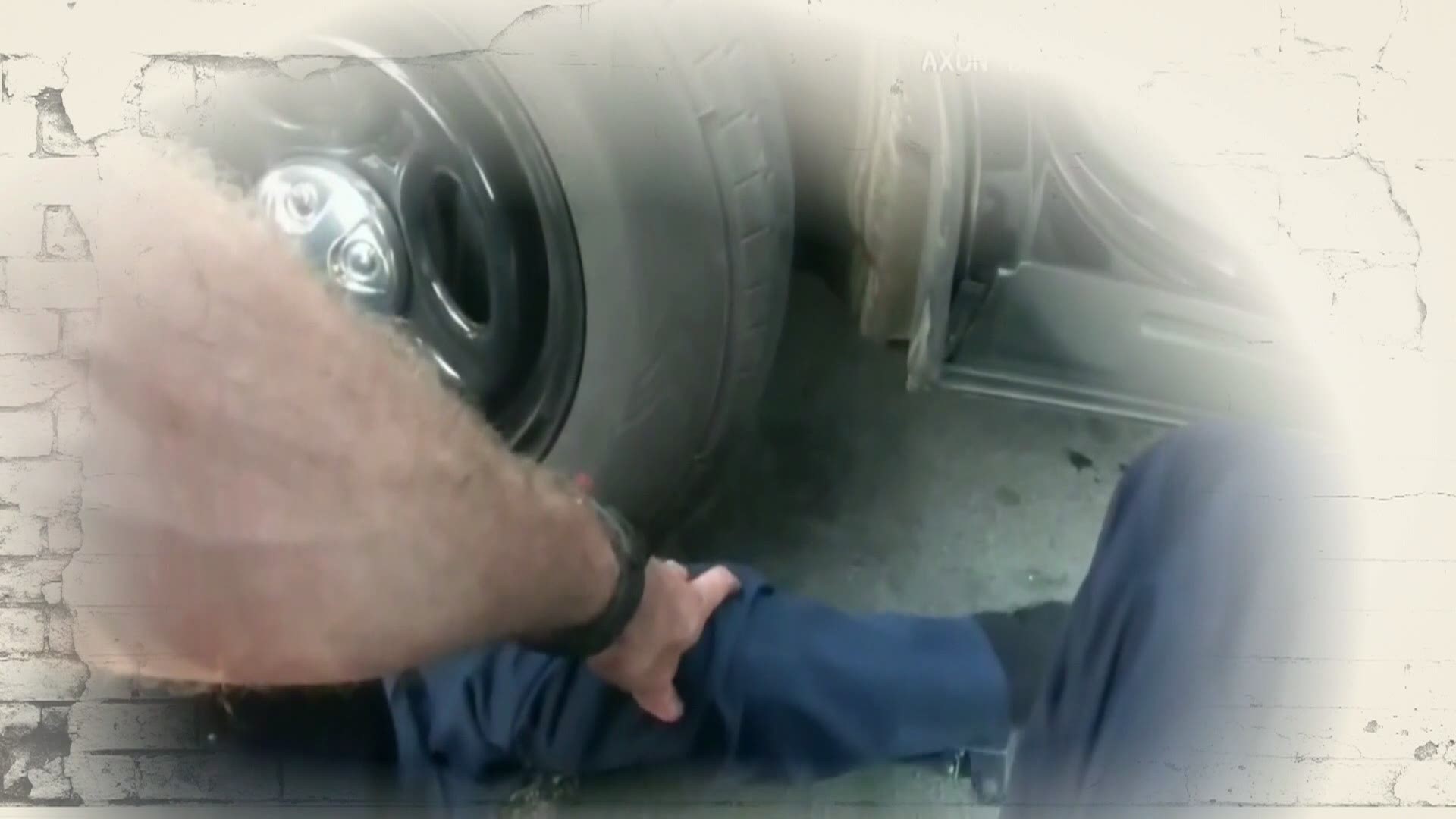MINNEAPOLIS — EDITOR’S NOTE – KARE 11 is teaming with investigative reporters at TEGNA stations nationwide to provide in-depth coverage of evidence in the Derek Chauvin murder trial.
As the defense began presenting its case Tuesday in Derek Chauvin’s murder trial, attorney Eric Nelson asked a Minneapolis police department trainer about something called "excited delirium.”
Officer Nicole Mackenzie testified that the department’s training materials include information that suspects experiencing excited delirium can exhibit “superhuman strength.”
During the last moments of George Floyd’s life under former officer Derek Chauvin’s knee, bodycam video recorded another officer asking about it.
“Should we roll him on the side?” Thomas Lane asked, according to a transcript of the bodycam audio introduced during case.
“No, he’s staying put where we got him,” Chauvin replied.
“Ok, I just worry about the excited delirium or whatever,” Lane said.
“Well, that’s why we have the ambulance coming," Chauvin said.
Does his attorney intend to argue that Chauvin continued to hold Floyd down because he feared the man could wake up in a state of “excited delirium”?


Although it is not recognized by the America Medical Association, the American College of Emergency Physicians officially listed it as a diagnosable condition 12 years ago. They said it is often associated with drug use.
Police have been criticized for using excited delirium as an excuse to aggressively restrain and even sedate someone.
One controversial case involved the August 2019 death of 23-year-old Elijah McClain in Aurora, Colorado.
Police put him in a neck hold, restrained him, and injected him with the powerful sedative Ketamine, claiming they believed he had excited delirium.
He had a heart attack and died days after his arrest. An autopsy found McClain's cause of death as “undetermined.”
A group of Colorado doctors have called on police and paramedics to stop sedating people they assumed had excited delirium.
“And if you have no other explanation, then you fall back on excited delirium. In the scientific literature, it is not that well described,” said Dr. Randall Clark of the Colorado Society of Anesthesiologists.


Other medical professionals are also skeptical.
“Excited delirium – which is a controversial diagnosis,” Dr. Bradford Langenfeld testified last week during Chauvin’s murder trial. He said George Floyd’s heart was not beating when he arrived at Hennepin County Medical Center last May.
As defense attorney Nelson cross-examined another Minneapolis officer during the first week of the trial, he seemed to hint about one of the arguments he plans to make.
“There are circumstances where after a person is rendered unconscious and then you perform, you revive, that person; that they are more combative than they were initially?” Nelson asked Lt. Richard Zimmerman.
“Yes, yep,” Zimmerman replied.


The Minneapolis police training material also warns that suspects experiencing excited delirium can also exhibit “violent and bizarre behavior.”
Once a suspected is handcuffed, however, the training materials also instruct officers to “place the subject in the recovery position to alleviate positional asphyxia.” It includes an illustration of the “Recovery position” showing a person turned on their side – exactly what officer Lane was asking.

